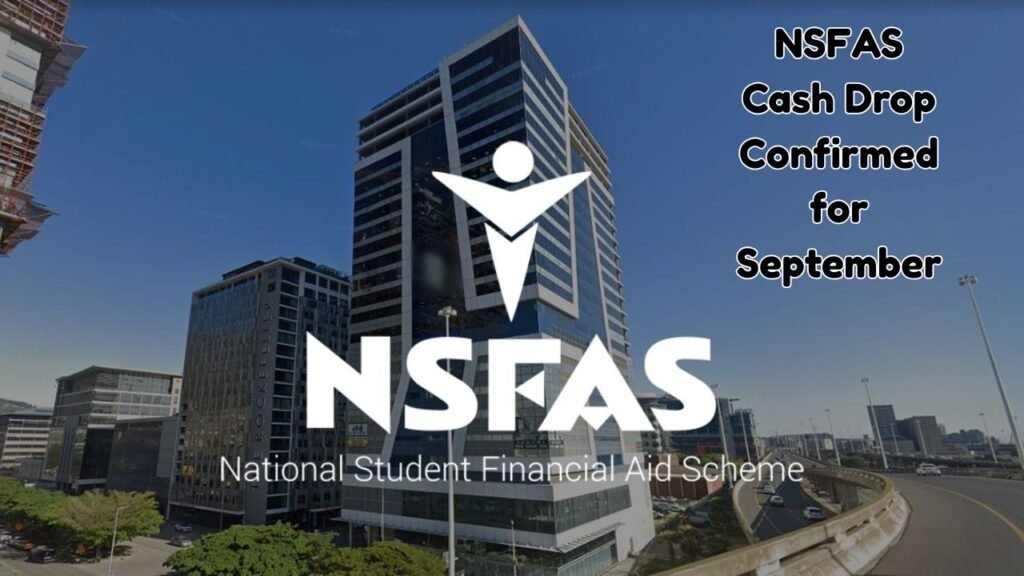NSFAS Payout Alert: As September 2025 approaches, South African students eagerly anticipate the R5,200 allowance from the National Student Financial Aid Scheme (NSFAS). This financial support plays a crucial role in alleviating the financial burden of tertiary education for many students across the country. With this allowance, students can cover essential expenses such as accommodation, food, and academic materials, ensuring they remain focused on their studies. The NSFAS payout is a lifeline for many families, especially during challenging economic times. As the date draws near, students are advised to stay informed about the disbursement process and ensure all necessary documentation is in order to avoid any delays.

Understanding the September 2025 NSFAS Allowance
The R5,200 allowance scheduled for September 2025 is part of NSFAS’s ongoing commitment to support higher education students in South Africa. This allowance is designed to cover a range of academic-related expenses, easing the financial pressure on students and their families. To qualify for this allowance, students must meet specific criteria set by NSFAS, including maintaining satisfactory academic performance and being enrolled in a recognized tertiary institution. It’s crucial for students to understand the eligibility requirements and ensure their application details are up-to-date. As the academic year progresses, the September payout is a timely financial boost that helps students manage their living expenses and focus on their studies without the constant worry of financial constraints. Students are encouraged to plan their budgets wisely and utilize the allowance effectively to maximize its benefits.
How to Prepare for the NSFAS September 2025 Payout
Preparation is key to ensuring a smooth NSFAS payout process in September 2025. First, students should verify that their banking details are correct and updated in the NSFAS system to prevent any payment issues. Additionally, maintaining communication with your institution’s financial aid office can provide clarity on the disbursement timeline and resolve any queries. Students should also regularly check the NSFAS portal for any updates or notifications regarding their allowance. It’s important to remember that while the R5,200 is a significant amount, budgeting is essential to ensure the funds last throughout the month. Create a budget plan that prioritizes essential expenses such as rent, groceries, and textbooks. Avoid unnecessary expenditures that might deplete the allowance prematurely. By being proactive and organized, students can make the most of their NSFAS allowance and support their educational journey effectively.
Common Challenges with NSFAS Allowances and Solutions
Despite the substantial benefit NSFAS provides, students may encounter challenges with their allowances. Common issues include delayed payments, incorrect banking details, and misunderstandings about eligibility criteria. To mitigate these challenges, students should ensure all personal and banking information is accurate and up-to-date in the NSFAS database. Regularly checking emails and the NSFAS portal for updates can also help identify and address potential issues early. In cases of delayed payments, students should immediately contact their institution’s financial aid office for assistance. Additionally, it’s beneficial to connect with fellow students who have navigated similar issues for advice and support. Understanding the system and maintaining open communication with NSFAS and your educational institution can significantly reduce the stress associated with financial aid management.
Maximizing Your NSFAS Allowance for Academic Success
For many students, the NSFAS allowance is a critical resource that supports their academic endeavors. To maximize its impact, students should adopt effective financial management strategies. Begin by identifying all essential academic and living expenses, then allocate funds accordingly. Consider using budgeting apps to track spending and ensure the allowance covers all necessary costs. Additionally, take advantage of student discounts and explore cost-saving opportunities, such as sharing textbooks or utilizing free online resources. Prioritizing academic expenses, such as purchasing essential study materials and securing stable accommodation, can enhance educational outcomes. By managing the NSFAS allowance wisely, students not only alleviate financial stress but also create a conducive learning environment that fosters academic success and personal growth.




